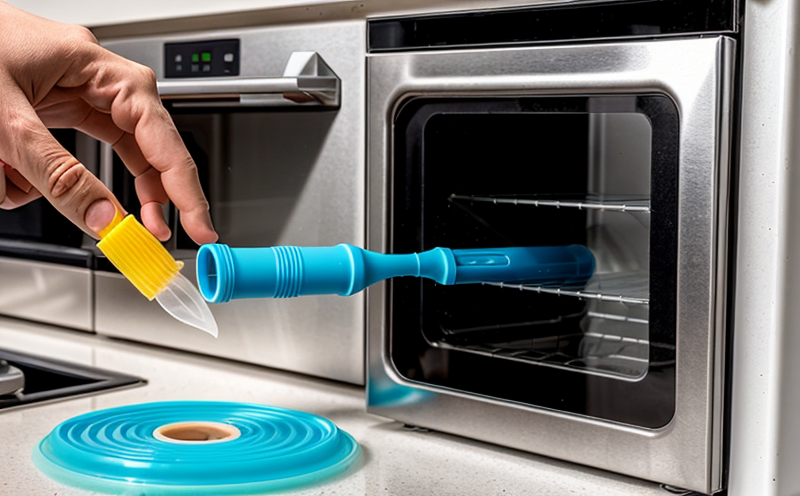Household Plastics Testing
In today’s fast-paced world, household plastics play a pivotal role in our daily lives. From kitchenware to children's toys, these items must meet stringent safety and quality standards to ensure consumer protection. Household plastics testing is essential for manufacturers and suppliers to guarantee the integrity of their products.
The primary focus here encompasses a wide range of tests designed to evaluate the physical, chemical, mechanical, and biological properties of household plastic materials. These tests are crucial for ensuring that the items meet national and international safety regulations and standards such as ASTM D792-18 or EN 30546:2020.
Our laboratory specializes in conducting comprehensive tests on various types of household plastics, including but not limited to polyethylene (PE), polypropylene (PP), polystyrene (PS), and acrylonitrile butadiene styrene (ABS). We employ state-of-the-art equipment to perform these tests with precision and accuracy. Our services cover a broad spectrum of testing parameters such as tensile strength, impact resistance, thermal deformation temperature, and chemical compatibility.
For instance, we conduct detailed analysis on the migration of potential hazardous substances like phthalates (DBP, DEHP) from plastic products into food or beverages. This ensures that all household plastics are safe for direct contact with consumables as per FDA regulations.
We also offer testing services related to biodegradability and compostability, which is increasingly important in the current environmental context. Understanding how these materials behave under different conditions helps manufacturers make informed decisions about product design and lifecycle management. This aligns perfectly with ISO 17835:2019 and ASTM D6400 standards.
The importance of household plastics testing cannot be overstated. It not only ensures the safety of consumers but also supports sustainable practices within the industry. By adhering to rigorous testing protocols, we contribute significantly to reducing waste and promoting a circular economy. Our team of experts uses cutting-edge technology to provide reliable data that can guide product development and improve overall quality.
Furthermore, our services extend beyond compliance checks; they include proactive measures aimed at enhancing the performance and longevity of household plastics. Through thorough testing, we identify potential weaknesses or areas for improvement, allowing manufacturers to refine their products before launching them into market. This approach fosters innovation and competitiveness in an ever-evolving industry.
In conclusion, household plastics testing is more than just a regulatory requirement; it’s about creating safer, smarter, and more sustainable products for everyone's benefit.
Why It Matters
The safety and quality of household plastics are paramount considerations in modern society. These materials come into direct contact with food, beverages, children’s toys, and many other items used daily at home. Ensuring they meet strict standards is critical to protecting public health and well-being.
- Health Risks: Exposure to certain chemicals found in household plastics can lead to various health issues including allergies, respiratory problems, and even more severe conditions like cancer. Compliance with established safety guidelines minimizes these risks significantly.
- Sustainability: As environmental concerns grow, the demand for sustainable materials has increased. Testing helps in developing products that are not only safe but also environmentally friendly, promoting a greener future.
- Consumer Confidence: When brands can demonstrate adherence to high-quality standards through rigorous testing processes, it builds trust and loyalty among consumers. This is especially true for companies marketing their goods as eco-friendly or biodegradable.
The stakes are high when dealing with household plastics due to the frequent use and close proximity these materials have in our personal spaces. Therefore, meticulous testing at every stage of production becomes indispensable.
Applied Standards
To ensure consistency and reliability across all tests conducted, we strictly adhere to relevant international standards such as ASTM D792-18 for determining the density of plastics and EN 30546:2020 for specific types of household plastic products. These standards provide clear guidelines on what needs to be measured and how results should be interpreted.
For instance, when testing for chemical compatibility under ASTM D792-18, we follow precise procedures that involve immersing samples in different solvents at specified temperatures over defined periods. The aim is to assess whether the plastic will leach harmful substances into its surrounding environment or product.
Another example is the evaluation of biodegradability and compostability following ISO 17835:2019, where controlled laboratory conditions replicate real-world scenarios. We monitor the decomposition process using specialized equipment to measure weight loss rates over time accurately.
The mechanical properties like tensile strength are tested according to ASTM D6400 standards by applying gradually increasing forces until failure occurs. This helps determine how durable and reliable a particular type of household plastic is under normal usage conditions.
Environmental and Sustainability Contributions
- Reduction in Waste: By identifying biodegradable alternatives early in the development stage, we help minimize landfill waste generated from non-recyclable household plastics.
- Innovation in Design: Our testing supports engineers and designers in creating innovative solutions that are both functional and environmentally responsible.
- Promotion of Circular Economy Practices: Through thorough evaluation, we encourage manufacturers to adopt practices that support recycling and repurposing at the end of a product’s lifecycle.





